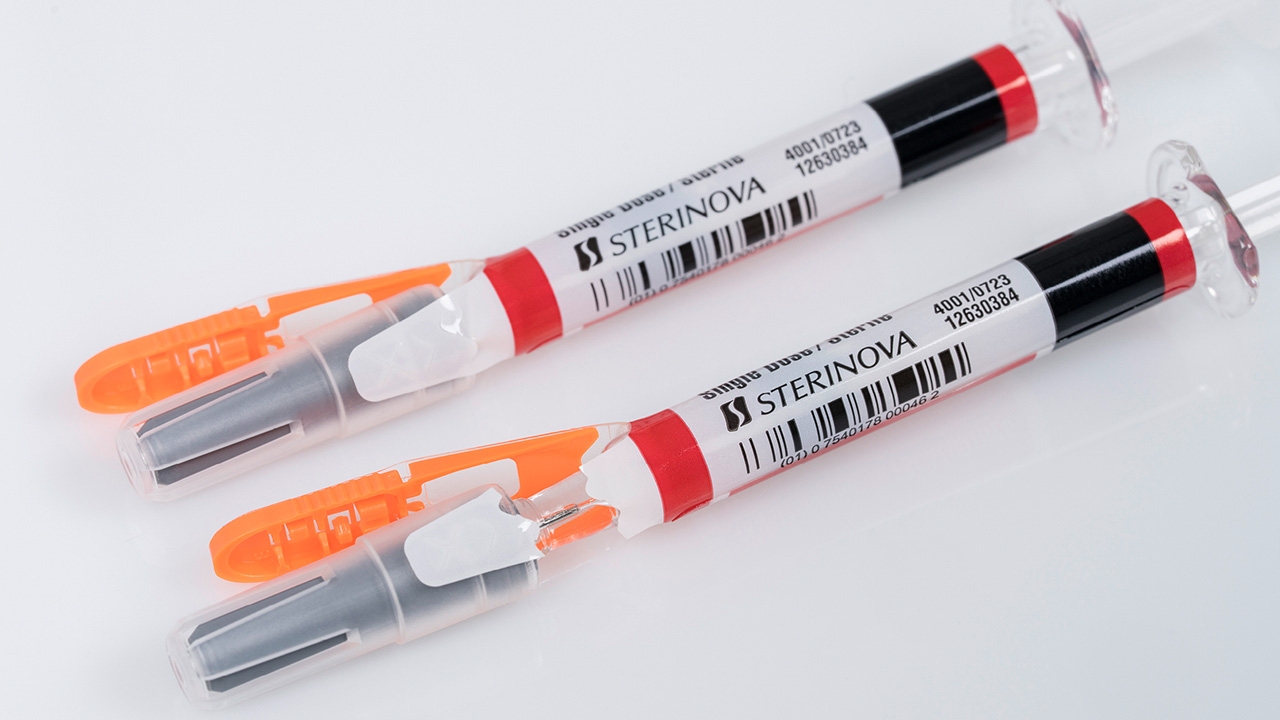Schreiner MediPharm launches Needle-Trap Secu
New technology enhances sustainability, saves space, reduces waste and offers high security.

Schreiner MediPharm has introduced Needle-Trap Secu, a protection label with a new integrated seal function that enhances sustainability and cost efficiency in storage, transportation and disposal of prefilled syringes.
Sterinova is one of the leading specialists in ready-to-use injectable drugs and has successfully used Schreiner MediPharm’s Needle-Trap system for its prefilled heparin syringes since 2016. Thanks to its compact design, this technology effectively protects against needlestick injuries while saving space and resources.
Needle-Trap is directly integrated into the label. This innovative combination enables ease of use in daily healthcare settings while containing significantly less plastics than conventional needle protection systems.
The new variant, Needle-Trap Secu, additionally offers integrated first-opening indication with a seal tab securing the integrity of the prefilled syringe until it’s used. Pulling off the syringe cap automatically activates the seal, which irreversibly indicates that the seal has been opened. The integrated seal function eliminates the need for an additional blister pack, resulting in considerable space savings, reduced waste and cost savings. In addition, special security elements prevent undetected reuse of the seal.
‘We have been using Needle-Trap for nearly ten years because it allows us to combine needle protection and sustainability perfectly,’ said Pierre Beaulieu, vice president of sales and marketing at Sterinova. ‘We are delighted to see that the new Needle-Trap Secu solution further enhances the positive properties, now also enabling us to offer our prefilled heparin syringes in loosely packaged form in a box because the integrity of each syringe is protected by the security seal.
‘According to our calculations, the utilization of our heparin syringes with Needle-Trap Secu can reduce waste by 46 percent compared to conventional blister packs. In addition, the compact Needle-Trap solution contributes to considerable reductions of CO2 emissions due to the reduction of waste at source before the product is delivered to hospitals. This approach positively impacts the whole supply chain from the manufacturing site up to the waste destruction by hospitals. Moreover, the label-integrated needle trap consists of up to 50% re-granulated material, which further reduces the environmental footprint.’
Stay up to date
Subscribe to the free Label News newsletter and receive the latest content every week. We'll never share your email address.

